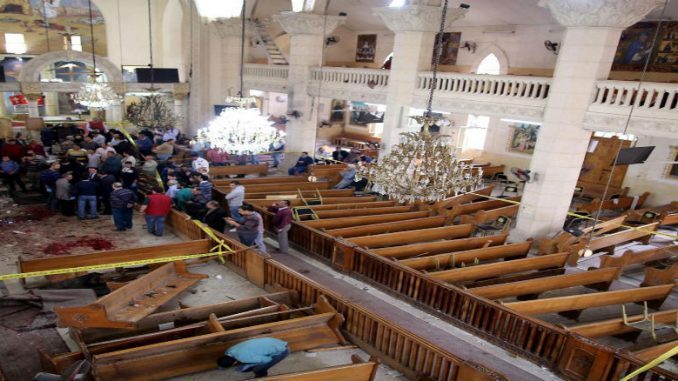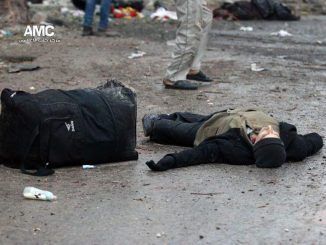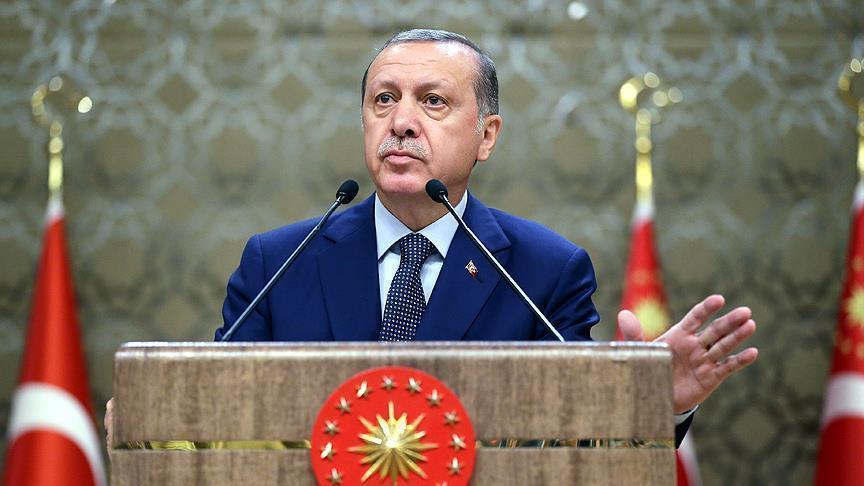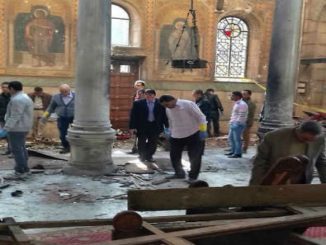
ISIS has claimed responsibility for two attacks on churches in Egypt that were packed for Palm Sunday. The two bombings killed at least 37 people and injured around 100.
The first bomb went off at a Coptic Christian church in the Nile Delta town of Tanta, killing at least 26 people and wounding over 70.
Hours after the first bomb, another bomb exploded at Saint Mark’s Cathedral in the coastal city of Alexandria, killing at least 11 people and wounding 35 just after Pope Tawadros II finished services, as reported by the Associated Press.
His aides later told local media that he had escaped unharmed.
ISIS claimed the attacks via Amaq new agency, which is affiliated with the group, after it previously warned that it would step up attacks on Egypt’s Christians.
CBC TV showed footage from inside the church in Tanta, where a large number of people gathered around what appeared to be lifeless, bloody bodies covered with papers.
Regional Deputy Health Minister Mohammed Sharshar confirmed the toll.
Across the street, neighbor Susan Mikhail, whose apartment has a clear balcony view of the church and its front yard, said the explosion violently shook her building mid morning, at a time when the church was full of prayers.
She said,”Deacons were the first to run out of the church. Many of them had blood on their white robes.” Later, the more seriously wounded started to come out, carried in the arms of survivors and ferried to hospitals in private cars, she said.
In fact, the two bombings raise fears that Islamic militants who have long been battling security forces in the Sinai Peninsula are shifting their focus to civilians in Cairo.
Last December, an Islamic State affiliate claimed a suicide bombing at a Cairo church that killed around 30 people, mostly women, as well as a killing several Christians in northern Sinai that caused hundreds of them to flee to safer areas of the country.
Moreover, the group recently released a video pledging to carry out attacks against Christians, who it describes as “infidels” empowering the West against Muslims.
Since the 2013 military coup that overthrew the first democratically elected President Mohamed Morsi, Egypt has struggled to combat a wave of Islamic militancy.
The Sinai-based IS affiliate, known as Sinai Province, has mainly attacked police and military soldiers, but has also claimed bombings that killed civilians, including the downing of a Russian passenger plane over the Sinai in 2015, which killed all 224 people on board and destructed Egypt’s tourism industry.
In fact, Egypt’s Cops are one of the oldest Christian communities in the Middle East. They have long complained of discrimination and that the government does not do enough to protect them.
It is worth to mention that Egyptian media had previously reported that the church in Tanta had been targeted in the past, with a bomb defused there in late March.
In the same context, the Copts were one of the major supporter to the military overthrow of President Mohamed Morsi, and they hoped that the al-Sisi’s era will bring them peace and security. However, Christians weren’t saved despite al-Sisi’s warm words and promises.



